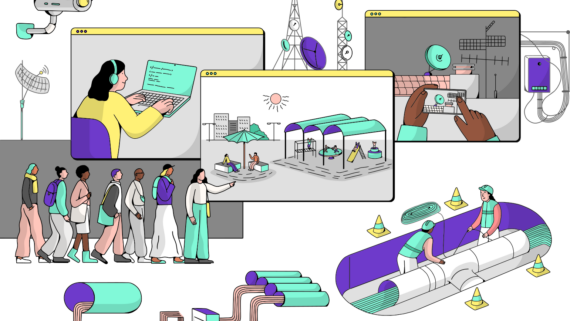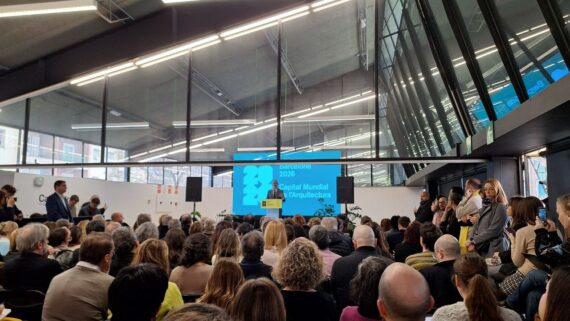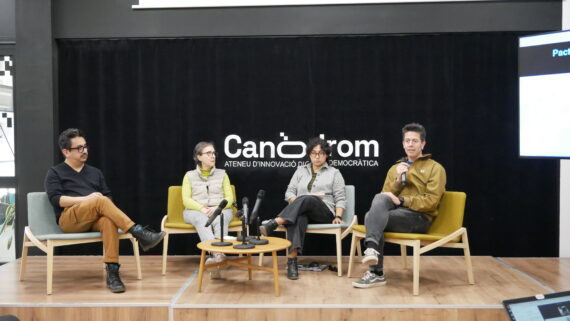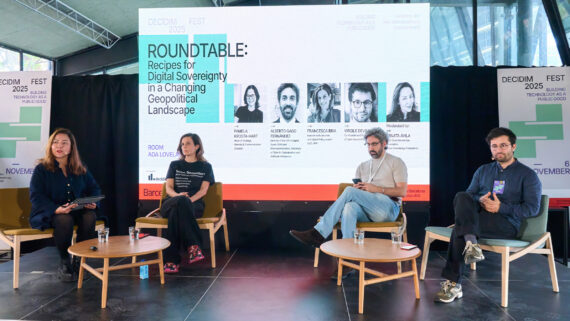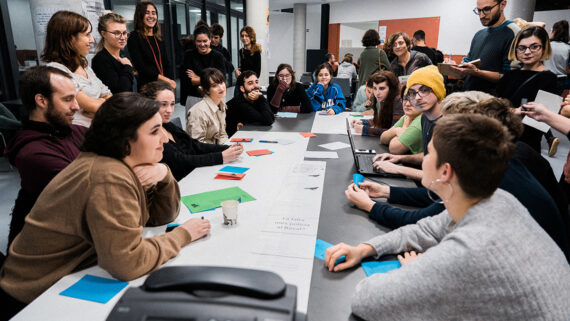Eva Belmonte, from Civio Foundation, explains on Radio Canòdrom how they got the Supreme Court to recognize citizens' right to know how the algorithms that make decisions about their lives work
Seven years. The time it takes to complete a university degree, have children, or change jobs three times. This is the time that Eva Belmonte and her team at the Civio Foundation have dedicated to a legal battle that seemed impossible. Getting the Spanish State to show the BOSCO code, the algorithm that decides who is entitled to the social electricity subsidy and who is not.
The story begins in a peculiar way. Belmonte about to take a nap, her lawyer teaching a class, the co-director at Moncloa. And suddenly, the news arrives: they’ve won the Supreme Court case. We talk to her about these seven years fighting for algorithmic transparency.
What is Bosco and why does it matter?
BOSCO is the application that decides whether a person receives the social subsidy or not, the aid for vulnerable families to pay part of their electricity bill. But here’s the problem. This process is done by a machine, not by any civil servant. And no civil servant reviews it either. «When the administration tells you that you’re not entitled to this aid, you normally believe it», explains Belmonte. «And that’s why it was already important for us, because there’s nobody monitoring that this works well in each particular case.»
The person who applies has to go directly to the electricity company, they don’t speak with a public official. If they have any doubt, the company can’t help them because it can’t access their data. Everything depends on the machine. And this machine, they discovered, wasn’t working properly.
The error that changed everything
In 2018, Civio created an application to help people know if they were entitled to the social subsidy, because the decree that regulated it was so complicated that it took them more than a month to understand it. Suddenly, they started receiving calls. Many people whom they told did have the right, when they applied, received a no. They asked the ministry for documentation on how the application worked. They didn’t give them the code, but they did give them the documentation.
It was at this moment that they discovered that all widows who marked that they were pensioners, even if they had income low enough to be entitled to the aid, received an automatic no. The application didn’t tell them they had marked the wrong box, it simply denied them the aid. «Then we got even more angry», recalls Belmonte. «These seven years have been hard because in the end it’s not just ‘I want to see the code because I want to see the code’, but because we want to know if there are more errors.»
How not to despair after seven years of waiting
«You despair anyway», Eva admits frankly. «Even more when you see that there’s something wrong that’s affecting people and it doesn’t change.» The process was long and hard. The National Court told them no twice. Appeals, lawyers, attorneys, time and dedication. «It’s a very long process and you need a lot of resources. A normal person who is perhaps claiming their aid, in the end gives up.», she explains.
But on the day of the oral hearing at the Supreme Court, everything changed. «Just the fact that they admitted it was an important enough issue to debate in cassation already made us very happy», recalls Belmonte. The judges asked intelligent questions, you could tell they had prepared the topic thoroughly.
A historic ruling
The result was totally unexpected and the Supreme Court ruled entirely in their favor. The ruling states that accessing information is a democratic right and that understanding how all the technology that affects us works is a right as citizens. «It’s very important because it’s the first ruling on this and because it sets a precedent», explains Belmonte. «From now on, not only for algorithms, but also for any request for information you make when you use the transparency law, you can invoke this ruling.»
The Supreme Court even defines Civio as «guardian and custodian of the rule of law», a recognition that greatly moved the team. «It’s how the work you do is recognized a bit, that you’re not a crazy person who suddenly wants to access the code to annoy the government, but that we have a mission.»
Why is open code crucial?
The ruling also talks about the importance of open code. Belmonte explains it clearly: «Anything paid for with public money should be open. Publishing the code helps the code be better. If many people look at something and monitor it because it’s open, someone can find an error you didn’t know you had.»
And she adds that «we can never allow the administration to understand that their work is something like a secret package. They also work for us and we have the right, because we’re their bosses, to ask them and see what they’re doing.»
Tips for not getting lost in bureaucracy
After seven years navigating the Spanish judicial system, Eva has some clear survival ‘hacks’:
-
Know the law that applies to you very well and anticipate the no. Think about what excuses they might use to tell you no and get ahead of that.
-
Have a lot of patience. Information requests always drag on, trials can go years without news.
-
Always appeal. «They tell you no to the aid? Appeal. They tell you no to the information request? Appeal. The administration makes mistakes many times.»
What now?
At Civio they have no hope that the government will comply with the ruling in the short term, but they’re clear that they must wait a bit to give them time and, if they don’t receive the code, call the court to report that they’re not complying with the ruling and demand that they be required to execute it. Meanwhile, the celebration playlist is already clear: ‘Gloria‘ by Patti Smith, «a song I always play when I’m feeling a bit down and want to lift my spirits. It’s a real pick-me-up.», explains Belmonte.
Seven years later, the nap interrupted by the Supreme Court has been worth it. And the lesson is clear. Sometimes it’s worth not letting go, even if it takes seven years.

